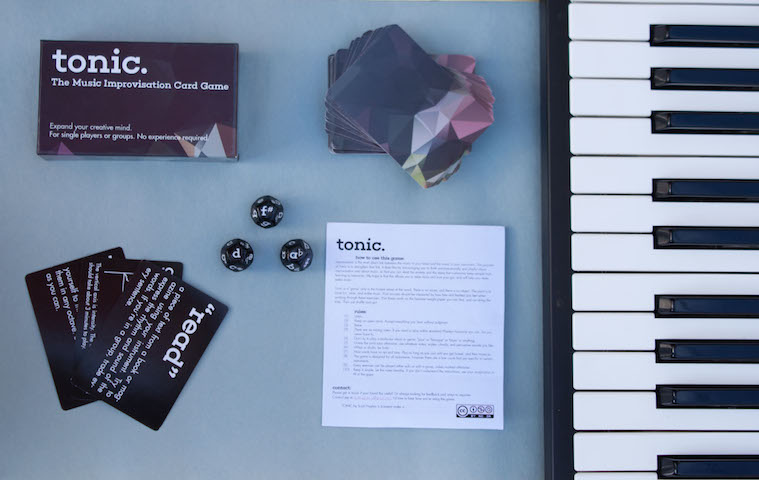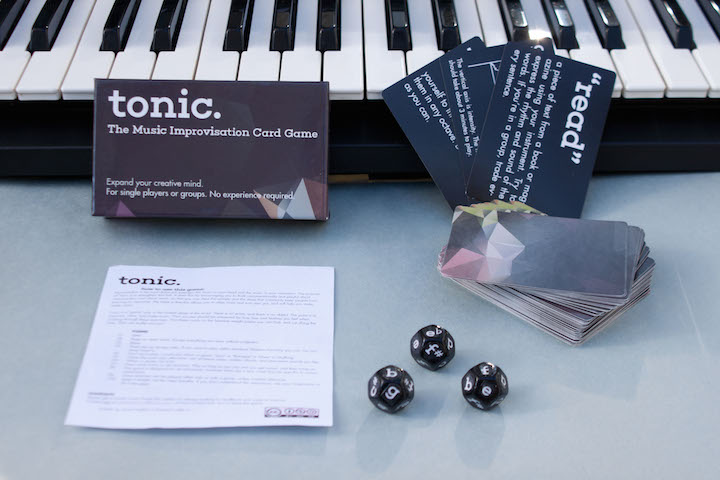One of the central music tenets that distinguishes jazz music is the art of improvisation – though we must emphasize here that improvisation is not a practice exclusive to jazz music. And make no mistake about it, the ability to create, to “make up” cogent statements and variations on a theme on the spot can indeed be intimidating to some, mysterious to most. What of the student musician, how does he or she gain a comfort level with the art of improvising, of seemingly making coherent statements on the spot. And of course there’s the notion of some who may be new to jazz music, that skilled practitioners somehow manage to “make it up” on the spot, to seemingly seize lines of music out of thin air as they go about their craft. It does take a special mind and years of arduous work before a musician can evolve to being an exceptional improviser; then once that skill has been achieved to varying degrees, the improviser must acquire the confidence to figuratively throw away the preconceived rules and allow improvisation to flow naturally from their chosen instrument. Indeed this can be a source of great frustration, even downright intimidation for some.
Recently, via Jazzcorner.com (the parent or host of this site) we discovered the ongoing efforts of a young musician seeking to bring a new improvisation teaching tool to the music education marketplace. Scott Hughes says he has the Tonic. We recently sought out Mr. Hughes to learn more about he and his motivation to simplify the improviser’s education; clearly a few questions were in order.
Give Independent Ear readers some background on Scott Hughes
I’m a musician and entrepreneur based in Philadelphia, originally from Pittsburgh. All my life I’ve been interested in improvisation, but have had trouble finding teachers who could help me.
I started playing piano as soon as I was tall enough to reach the keys, and became obsessed with the blues and jazz from an early age. In college I studied music and while I loved the fact that I was able to spend so much time playing, I felt out of place. Music school was a competitive atmosphere, and while it drove me to work harder at times, it ultimately was an anxiety-inducing experience.
I often felt overwhelmed by the amount of information that I was taking in. Every teacher was talented and well-meaning, but everyone was telling me to practice something different. One might say I should be transcribing Charlie Parker solos, while another would suggest I transpose Real Book tunes into every key. And yet other teachers were trying to expose me to 20th century classical music
Talk your new project Tonic.
Tonic is a game that helps musicians practice improvisation. Using cards and dice, it’s a stress free way to experiment with improvisation. Each card has a clear but open-ended instruction that asks you to create a short piece of music on the spot.
It’s not a traditional game, since there is no score and the rules are relaxed. But Tonic will challenge you to rethink your approach and gently push you out of your comfort zone, which will help you grow as an artist and musician. The entire game is available for free at tonicgame.com, but I’m also running a Kickstarter campaign to produce a professional version with high-quality cards and dice.
Tonic is based on the idea that improvisation should not be a serious endeavor — that improv should be playful and fun. For many people, myself included, the idea of making up music on the spot is difficult. It can be a source of stress and anxiety: “What do I play? Does it sound good enough?” And so on.
But when you look at the most masterful improvisers of all time, you don’t see that. You see easy, unbridled expression and confidence.
My goal is to bridge that gap and bring an element of playfulness to a subject that can be intimidating to beginners and experienced players alike.
What disparities in jazz education, and the way people learn to play jazz, did you detect that inspired your development of Tonic?
When you think about it, all musicians are improvisers. All composed pieces of music in history — every song, symphony, or solo– began as in improvisation. They must have been; because when you’re creating something new, there is nothing written down!
Somewhere along the way, we got lost. We started teaching students that in order to play jazz, you need to learn scales and chords. You need to study the Real Book. You need to listen to Charlie Parker and John Coltrane.
These things are all important, but they are intimidating to the beginner. The learning curve is too steep. A beginning musician needs to focus on simpler ideas: How do I create a piece of music from beginning to end, no matter how simple? How do I express myself? How do I make it fun?
Tonic addresses these questions head-on.
What would you say are the most practical applications of Tonic, and who/what is your target constituency?
Tonic is for any musician who wants to become a more creative and confident player. It’s deliberately designed so that musicians of every background and instrument can play and challenge themselves as artists.
The original version is available now on Kickstarter, and can be downloaded for free as a file which you can print at www.tonicgame.com.
Musicians who are high-school aged or older will get the most out of it, because they have enough experience with music to understand some of the concepts and terminology. But I have made an effort to keep everything accessible to even complete beginners. There are detailed instructions and a glossary included.
Tonic is not intended as a comprehensive solution. If your goal is to learn to improvise at the organ or at a jazz club, you will most certainly need a more structured and detailed approach. But Tonic is something that can be used in conjunction with these methods to encourage a more carefree and unconventional approach that will help them retain the spirit of “play” as they work through a more rigorous training program.
Ultimately what do you envision as the evolution of Tonic?
I envision Tonic developing into a community of individuals and educators who recognize that improvisation is something that all musicians, even if they aren’t doing it in a performance setting. Improvisation cultivates a fearlessness and a boldness that cannot be attained any other way.
The rewards go far beyond the actual practice — even if you’re a classical player and you never once play a note that isn’t written on the page, you will grow as an artist and as a person if you feel comfortable with improvising and expressing yourself through structured improvisation.
The beauty of Kickstarter is that it allows a creator like me to get feedback and test a new idea and see how people in the real world are using it. I have already begun to develop extra add-ons for Tonic, and will continue to refine and develop new ways to help students and educators, in hopes that Tonic will encourage improvisation to play a larger part in music education everywhere.



